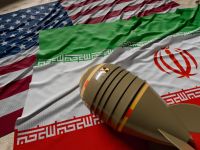Precision and accuracy in the discussion of legal aspects of Arab securities markets is still urgently needed. A technical awareness of the legal Arab phenomenon is required in order to develop healthy Arab securities markets. For, legal Arab awareness vis-a-vis capital markets regulation has often lagged behind the development of Arab trading systems.
Indeed, due to the complex (and highly specialized) web of legal relations that are involved in the issuance of securities, many Arab countries have traditionally fudged addressing a whole raft of legal questions. From an Arab perspective, the inadequacy of understanding the legal requisites of the operational aspects of capital markets and their interaction with the basic underlying legal rights/regimes, has proved too nebulous if not irrelevant at the early stages of Arab equity markets trading. However, such neglect of legal and regulatory questions is now catching up with Arab capital markets as they intend to market themselves globally.
In this respect, it is noticeable that the Arab world is almost unique in being left behind with respect to emulating international regulatory standards. For example, unlike the wealth of regulatory literature available on the emerging markets of Eastern Europe, the legal implications of trading on the emerging markets of the Arab world have received little Arab attention from lawyers and researchers. Having said this, the Arab Monetary Fund, is slowly but assuredly catching up and plugging up much of the regulatory hole.
Arab capital markets are often contrasted with each other on the basis of statistical data relating to their capitalization, listed companies, turnover, raise or fall in their indexes, E/P ratios, etc. Yet they are rarely contrasted on the basis of their regulatory environments. Indeed, few empirical studies have been conduced to compare and contrast the regulatory characterizes of Arab capital markets.
It is important to point out at the outset that the term 'Arab capital markets' often (but not exclusively) refers to the 11 Arab countries that have established formal stock exchanges. These countries are: Jordan, Kuwait, Lebanon, Egypt, Morocco, Saudi Arabia, Oman, Qatar, Bahrain, Tunisia and the emerging Palestinian entity.
For its part, the United Arab Emirates in late March opened the first formal bourse in Dubai with 8 listed companies and it is expected that the establishment of this formal bourse would significantly increase primary issues. It is worth mentioning that the federal government together with the 7 states that make the UAE own around 40 percent of 50 local companies which have traditionally trades their equities on non-official markets.
For its part, the Palestine Securities Exchange (PSE) was incorporated as a private shareholding company in early 1995. It started trading on Feb. 18 1997, and the number of listed companies have varied over the years. They are between 23-28, though may reach 40 by 2001 with an estimated market capitalization of about $1 billion.
However, when examining the regulatory classification of Arab securities markets one generally speaks of four distinct groups of Arab countries - though it is empirically more accurate to speak of three groups. In this context, Abisourour's prototype division of Arab equity markets on macroeconomic-regulatory development into four groups is still relevant, although much has changed since the publication of his article 'The Emerging Arab Capital markets: Status, Role and Development Prospects' in S El-Naggar Financial Policies and Capital Markets in Arab Countries (IMF) in 1994.
The first group of Arab countries consists of Arab countries like Mauritania, Somalia, and Libya. These countries simply lack the requisite macroeconomic foundations and economic infrastructure necessary for securities markets. They are all unlikely to establish credible stock exchanges in the medium or short terms.
The second group consists of Algeria, Iraq, Yemen, Sudan and Syria. These countries may have some limited forms of equity markets. But due to near complete state monopoly over the economy, a meaningful role for the private sector has so far been excluded, dashing immediate hopes for erecting equity markets that can play a significant role in the national economy. This, however, does not mean that the aforementioned countries are not currently attempting to liberalize their economies or reform underlying corporate legislation.
For example, although Syria has so far rejected IMF structural adjustment programs, since the early 1990s it has been adopting some liberal economic policies aimed at encouraging private investment. In this respect, Law No.10 of 1991 grants productive investments (owned by Syrians or non-Syrians) tax exemptions and regulatory privileges.
These "productive investments" are however expected to "create employment, promote exports, or lead to transfer of technology and managerial expertise." Law No.10 of 1991 has also been recently amended (in late 1999), notably by increasing the ceiling of foreign ownership in designated Syrian projects. But although Syria still does not have a formal stock exchange, over-the-counter share trading (in banks) is on the increase. — ( Jordan Times )
By Lu'ayy Minwer Al Rimawi
The writer is and author and researcher on Arab capital markets regulation at the London School of Economics
© 2000 Mena Report (www.menareport.com)







